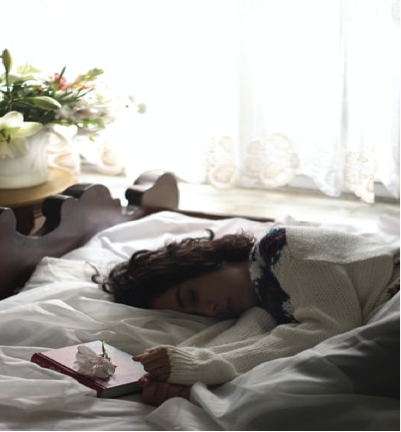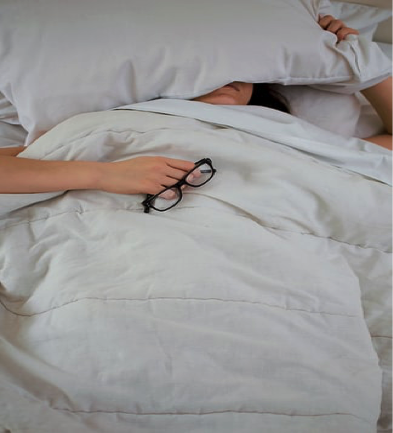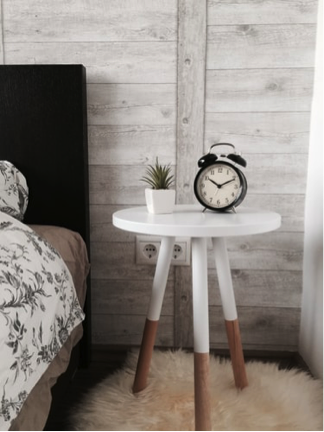
Who knew that ”COVID-19” would be a household name for 2020. Eight months into the new decade and it is still with us. As we pivot, modify, and adapt to the new norms, the common theme through it all is more time at home. For a small minority, this may be good news. But for most others, we may find ourselves sleeping more and feeling more lethargic.
Does more sleep time equate to better sleep quality?
A survey led by King’s College London showed that 62% of respondents in the UK are at least getting the same amount of sleep they use to before lockdown or more. But why do we sleep more when we are moving less?
Sleep is important for both our physical and mental health. Getting high quality sleep and enough of it helps:
- Empower and strengthen the immune system.
- Promote cognitive functions.
- Enhance one’s mood.
- Decrease the risk of suffering from mental health conditions.
Our recent poll on Instagram (@Globalc19study) showed that 71% of our followers reported that lockdown has affected their sleeping habit.

What does the research say?
Dr. Mathew Walker, a sleep expert reveal interesting facts about sleep in his book ‘Why We Sleep: Unlocking the Power of Sleep and Dreams‘. We mention some below:
- The average person needs at least 8 hours of sleep per night, however, 2/3 of the population do not get enough sleep.
- The shorter your sleep, the shorter your life span.
- Short Sleeper Syndrome is a sleep condition that allows a person to sleep less than 6 hours and be fully functional. Research by Shi et al (2018) demonstrated that short sleepers tend to be more optimistic/energetic, better at multi-tasking, have higher pain threshold, and don’t suffer from jet lag.
- Sleep loss is linked to the acceleration of a plethora of common issues, such as DNA damage, cancer, diabetes and weight gain.
- Some people process caffeine faster than others, and we get less efficient at processing it as we age.
- We produce a neurotransmitter (Adenosine) which is continuously secreted from the moment we wake and builds up until we cannot resist the urge to fall asleep – a process known as sleep pressure.
A recent self-report study showed that during the pandemic, people slept more on average but, presented poorer sleep quality. Sleep quality is defined by one’s satisfaction of the experience, including the initiation of sleep, its maintenance, its quantity, and the level of refreshment upon awakening.

So what are the factors influencing sleep during the pandemic?
- Physical Activity plays a crucial role helping us consume energy (stamina) and keeping our mind and body healthy.
- Anxiety and stress, which could be due to numerous factors such as isolation, work, incertitude or conflicts (read more about it in our previous blogpost).
- Quality of sleep, which includes your quantity of sleep, how fast you’re able to fall asleep, how tired you feel when you wake up and how often you wake up at night.
- Exposure to light, being exposed to screens may negatively impact your sleep cycle, while being exposed to natural lighting improves your circadian rhythm.
- Sleep habits, are mainly influenced by behavioural and environmental factors before sleeping. (E.g. exercising before bed and being exposed to blue light both negatively influences your sleep).

Many people report having more vivid dreams during lockdown – why?
- 78% of our social media followers claim to dream more often and better able to recall their dreams since the start of lockdown while 25% experienced an increase in nightmares. This increase in recalling one’s dream is partially due to the amount of sleep we’re getting. More sleep equals more time in the REM stage which equals more dream time. (REM or Rapid Eye Movement stage is the stage during which dreams, body movement and faster pulse/ breathing occur).
- Sleep is sometimes referred to as overnight therapy (It boosts brainwaves), since sleeping and dreams help us process emotions, information and memories. It is proved to help process painful emotions and anxiety.
- It is thought that dreams can also help us prepare for difficult situations by producing dreams simulating these stressful situations to help us face our fears, this mechanism being referred to as the threat-simulation theory.
- In an on going study, Covid-19 lockdown has been found to cause a 35% increase in dream recall and 15% increase in nightmares. In a different study analyzing dreams, nightmares have been linked with parasomnias and PTSD symptoms. Deirdre Barrett, a Harvard professor and author of ‘Committee of Sleep’ explains that this increase in dreams and nightmare could be due to the fact that the virus is invisible, and thus take different form/shape in one’s mind.

How can you improve your sleep quality?
In his book, Matthew Walker shared some tips to promote better sleep habits:
- Stick to a schedule and a routine, it will allow your body to adapt to a consistent sleep schedule. You can do so by setting an alarm every morning at the same time while avoiding pressing the snooze button and setting a bedtime ritual to prepare your body to sleep (e.g. taking a warm bath or reading a book, avoid blue lights!).
- Sleep in your bed without technology. Avoid working or using your laptop in bed so you can associate your bed strictly with sleeping. If you have a hard time falling asleep, do not force it: Instead get out of bed and do something that will relax you – but stay away from screens.
- Expose yourself to the right type of lighting. This means avoid blue light before getting into bed and expose yourself to natural lights – through walks or opening the blinds – to improve your circadian rhythm and melatonin levels. The circadian rhythm is responsible for your sleep/walk state while melatonin is the hormone that regulates the sleep/wake cycle which increases in the evening to induce sleep.

- Avoid napping, especially after 3pm. Even though you are spending more time at home and might be tempted, you should avoid naps as it will impede on your sleep cycle.
- Be physically active. Lockdown or not, being physically active for 150 minutes/week helps you feel alert during the day and sleep better at night.

- Actively try to reduce your stress levels. A wide range of apps are available to teach you breathing, meditation and relaxation techniques e.g., Calm, which is available in the app store.
- Keep a healthy and balanced diet. Avoid large meals, caffeine/sugary/alcoholic drinks, especially later in the day since it will disrupt your sleep cycle.
- Have a cool bedroom. When we stay cool, we’re referring to the temperature in the room; we tend to sleep better in cooler environments.
This post was written by Ms. Laetitia Al Khoury (@LaetitiaAK), a MSc student on the Masters in Child Development degree at UCL with minor comments from Dr Keri Wong (@DrKeriWong).
2 replies on “Do you hit the snooze button and snooze again?”
[…] persists. We have so far covered a range of topics on the effects of COVID-19: from how our sleep may be affected, to relational conflicts with family/partners and staying motivated during these […]
LikeLike
[…] some of our study resources page and blogs on tips and techniques for better sleep and mindfulness practices. Staying connected with friends and community are also […]
LikeLike